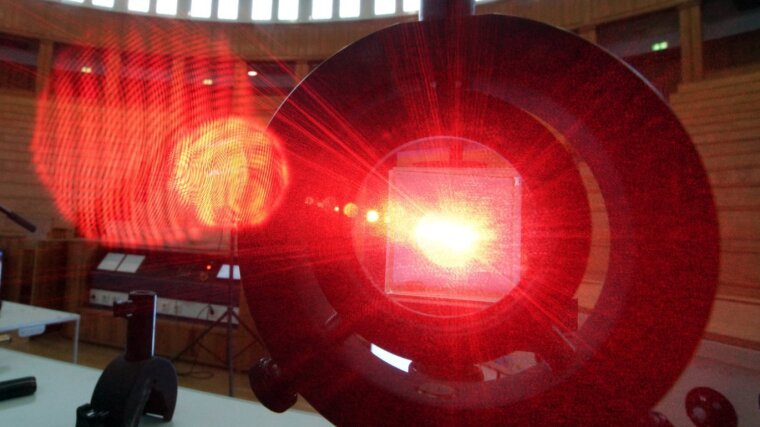
The interdisciplinary M.Sc. Materials Science program is aimed at students with a bachelor's degree in materials science/materials scienceExternal link, chemistry, physics and related fields. Entry is possible in the summer and winter semesters.
The 4-semester Master's program is located at the Otto Schott Institute for Materials Research and is supported by the Faculties of Physical Astronomy and Chemical Geosciences. The professorships at the institute deal with metallic materials, glass chemistry, surface and interface technology, biomaterials and composites, the mechanics of functional materials, computational materials science, as well as bioactive glasses, and offer students a wide range of electives for specification and specialization. In addition to the materials science professorships, students in Jena also benefit from the offerings of the Institute of Applied Physics (laser technology, micro- and nano-optics), the Institute of Solid State PhysicsExternal link (photovoltaics, superconductivity and thin film physics) and the Institute of Organic and Macromolecular Chemistry de (self-healing materials, polysaccharides), among others. In addition, the Master's curriculum encourages participation in current research projects of the chairs.
Jena itself is a young, dynamic city ("Happy -Jena EditionExternal link") with a wide range of culturalExternal link and sports activities. The Studierendenwerk ThüringenExternal link operates dining halls, has a large offer of furnished shared rooms, advises on questions regarding BAföG and much more.
-
-
Faltblatt_MSc_WeWi_2023 de
- File type:
- File size:
- 2 mb
- Modification date:
-
Modulkatalog_MSc de
- File type:
- File size:
- 581 kb
- Modification date:
-
Musterstudienplan_MSc de
- File type:
- File size:
- 55 kb
- Modification date:
-
Prüfungsordnung_MSc_Werkstoffwissenschaft de
- File type:
- File size:
- 294 kb
- Modification date:
-
Studienordnung_MSc_Werkstoffwissenschaft de
- File type:
- File size:
- 235 kb
- Modification date:
-
Faltblatt_MSc_WeWi_2023 de